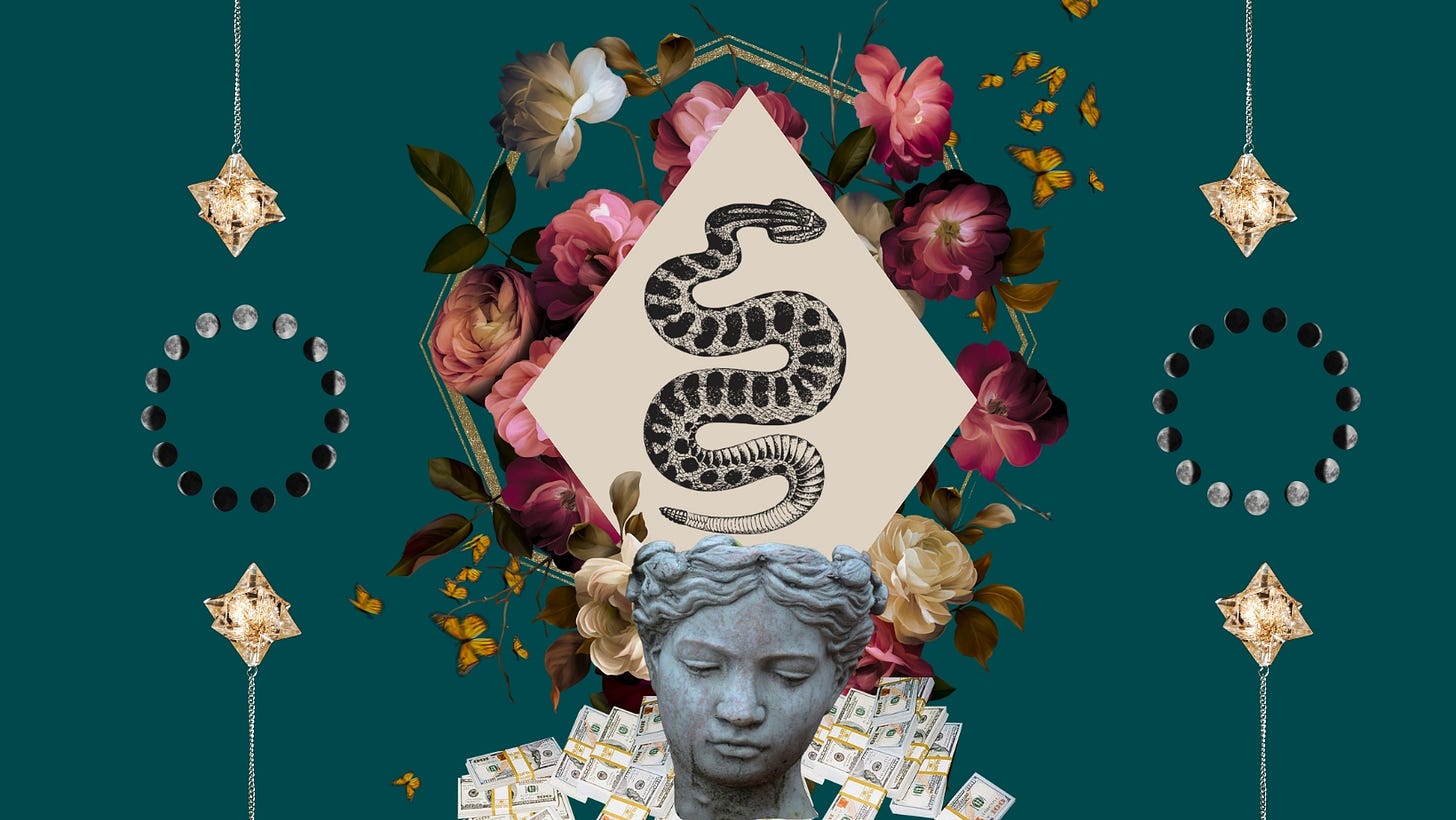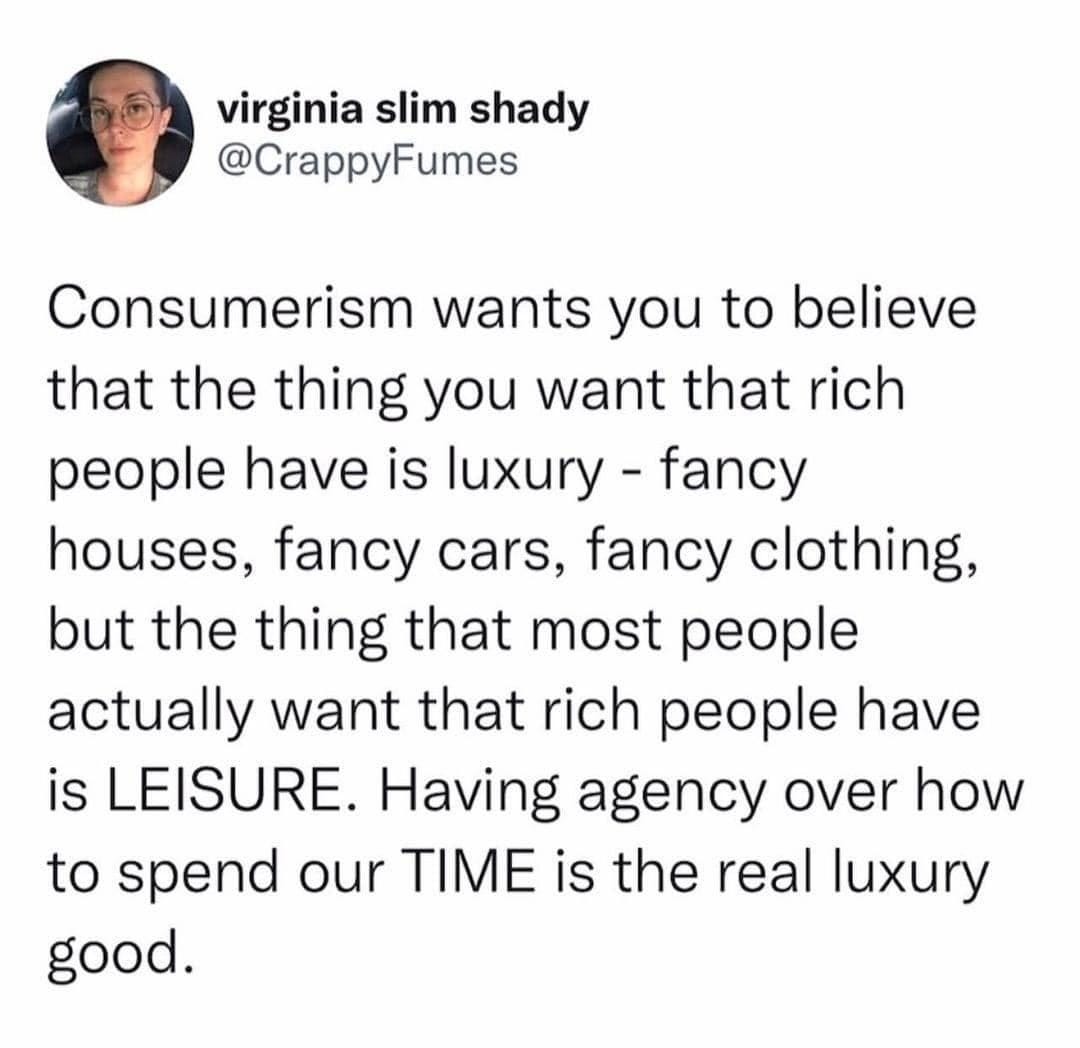Radical Luxury: A Brief Manifesto
Accessing leisure, pleasure, and intentional cultivation of the spiritual, intellectual, and creative self, is a fundamental human right and aspect of social change.
My Juno Jar Magic is the crown jewel of my labor ecosystem: communal magic dedicated to cultivating wealth and prosperity grounded in beauty, wholeness, peace, and personal satisfaction. But my body of work in the world is so much more than the indulgences of beauty, or the cultivation of material gain.
Radical Luxury, for me, is an ethos of cultivating a personal life. My life is shaped and foundationed by the belief that the divestment of the power to access leisure, pleasure, and intentional cultivation of the spiritual, intellectual, and creative self, is a fundamental human right and a mandatory aspect of social change. In order for us to exist in a society that is predicated on the politics of care and solidarity, we are required to divest from all non-consensual relationships with power: we ALL must reclaim our agency (our innate power) with responsibility & support from those around us, wielding that power, and knowing how to get what we want from that power. Otherwise, folks who know how to do those things - who do not care about integrity, their own or yours - are doomed to ascend into trauma, and repeat cycles of violence of which we are all victims. Radical Luxury is, ultimately, knowing we have the power to be imperfect and evolving as we act to create a collective standard that reflects and feeds our aspirations and not our unavoidable suffering and fears.
The foundation of this is supporting my audience and clients in creating integrity for themselves and others. Integrity is, to me, a verb, not a noun. Integrity is seeking to always act and make decisions based on your whole beingness, while also honoring the whole beingness of others. I consider it an alternative to the more static and one-way concept of selfishness, even in more positive definitions and lights. One place where we consistently struggle to maintain a sense of integrity is in relationship to pleasure, satisfaction, and uninhibited individuation: not only because there are a number of hegemonic structures that encourage us to see our embodied beingness as vile or as untrustworthy/unworthy, but also because we are in a constant struggle with our personal and collective trauma + existential fear, with vanishingly little in the way of social cohesion mechanisms to help us overcome those things, and to celebrate, commemorate, and encourage the absence of these struggles amongst the generations that come behind.
I propose that agents for liberatory social change have over-emphasized the necessity of struggle and denial in the language of solidarity, and as a consequence, lionized the destruction of the thing our various movements offer to us all: the transformational potential of care. To quote Tanya Talaga, “In Ojibwe and Cree culture, “leadership” didn’t mean power: it meant caring.” We absolutely cannot rely on any sort of systemic organization of the world where we divest the responsibility of caring into others by vesting them with power: we are each our best knowledge of what matters to us as individuated beings, and we must use this insight and apply our agency to create structures, systems, institutions, and rituals that enable us to participate in the care of others in a way that creates space for us to step into these desires fully. That requires that we each must be invested in our own individual existences beyond what we consume, or who we think we are, or what we can perform for others.
I would argue that power and caring are not mutually exclusive, that we are obliged to use our power to make space for ourselves and others, and anything that operates in contrary is an inhibition to human progress. In order to effectively steward several billion people towards universally held values of liberation, I believe we must divest ourselves of the idea that the suffering — or even the idea of struggle — itself is noble, or dare I say, even necessary. The idea that our capacity to suffer or our willingness to struggle (even in solidarity or advocacy!) is a reflection of our ethical and moral character, or the consistency of our political praxis, is a deeply flawed self-concept that will inevitably lead to our doom as a collective. Science tells us that habits of change are much harder to sustain from a place of negative — what we don’t want, who we don’t want to be — because it gives us no fuel to sustain the change except denial and loathing. We alienate those who came before us as an alien ‘other’, and thus deny their presence and impact on who we are now, creating a dichotomy of separation both when reflecting on humanity’s trudge through time, but also in our present. This will always prevent liberatory movements from achieving their objectives.
Ultimately, this ethos not only came through the age old tradition of intergenerational, historical dialogue and dialectical examination, but also through my lived experience. As a Black & Indigenous, chronically ill femme, I live a life that I am not entitled to live by the conventions of our current global hegemonies, politically & spiritually. I feel no pressure to perform perfection, or to even have any answers or authority beyond the consensual power I play with for the kicks. I have a relationship with my power and resources that reflects who I am as a constellation of the Universe’s constant change and my own agency in response.
When I made a decision to become a force of nature unto myself, an expression of the power of change, rather than deny that I exist as anything other than that, Radical Luxury was born. As all forces of the natural universe do as a matter of observable habit, I cultivated my life and inner being by deliberately choosing to learn how to operate with effortless action — helping me to create my own integrity, and to grow beyond the limitations of mind without rejecting my body or the awesomeness of the material world in which we live.
You don’t have to wait for the world to give you goodness, compassion, kindness, or agency: you can simply become it yourself.
Subscribe For More + Become A Patron
When I first joined Patreon back in the day, I made it a point to not have any special privileges for patrons based on their pledge amount. I did that on purpose because society rewards economic privilege and wealth all the time, and a huge part of my beingness in the world is getting to people see *our collective enhancement* (including through, say, culture-making/building work such as mine!) as a worthwhile investment in and of itself, separate from production. Furthermore, divorcing monetary support from the volume of production itself, also allows me to make better work, in the time it takes to make excellent work, which benefits everyone. It is a win-win.
I am going back to my roots here on Substack, mostly to incentivize myself to experiment and create again!
By becoming a paid patron (starting at $4.50 USD/month), you’re enabling me to honor my rhythm as a creative, produce quality work that is meaningful and not driven by profitability or brand appeal, and thus fills the world with art that has meaning rather than content built solely to convert a sale.







